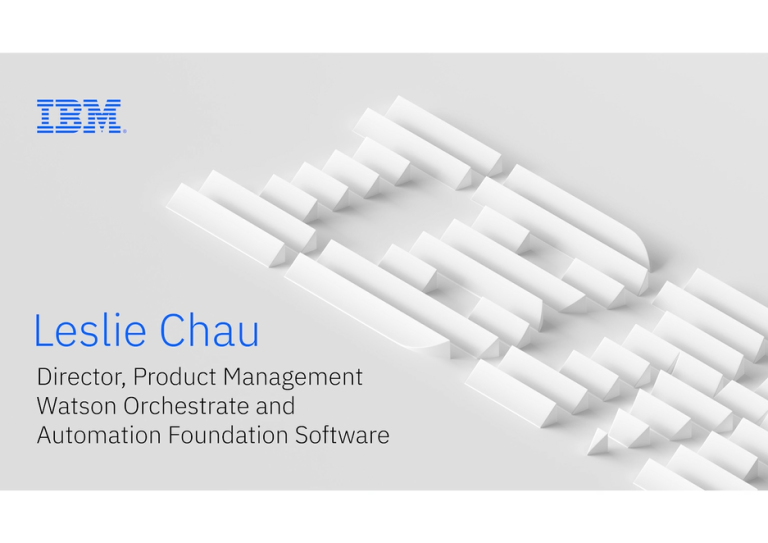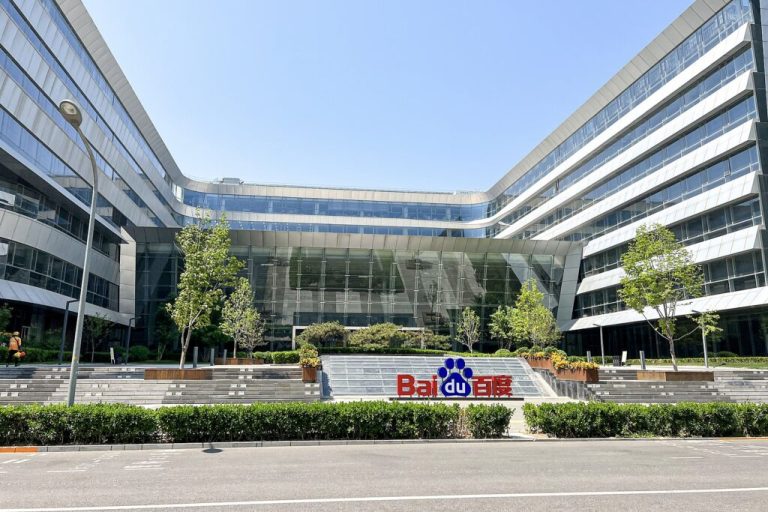Unlocking the Future: How AI is Transforming Hybrid Security Systems for Enterprises
What Leveraging AI in Hybrid Security Systems Means for Enterprises
Artificial Intelligence (AI) is becoming increasingly prevalent, more so than many realize. Many of today’s leading technologies are fueled by AI, which streamlines processes and enables individuals to achieve more in less time. Currently, AI is making its way into commercial security systems, bringing about significant transformations in the technology landscape.
Modern security systems incorporating AI technology are improving the ability of security teams to identify threats and react swiftly, enhancing protection for businesses. Organizations can utilize AI to assist security operators in analyzing data more effectively and optimizing operations. This allows teams to prioritize critical issues and identify anomalies as they arise, ultimately empowering them to respond to threats faster and reinforce overall security for the enterprise.
Automating Learned Behaviors with Data
One significant application of AI lies in its ability to learn from data patterns and automate responses accordingly. By analyzing historical data, AI can develop automated procedures, thereby streamlining processes and allowing security teams to concentrate on more urgent matters. In many scenarios, AI enables personnel to execute essential tasks more efficiently while upholding the necessary data security and organizational standards for optimal operations.
Integrating physical and cybersecurity systems enhances the utility of AI in analyzing combined data streams. AI can learn behaviors that simplify the management of extensive data points across an enterprise’s network, facilitating automated alerts for areas of concern and promoting efficient security audits over time. For instance, if a specific alert from the video security system is frequently disregarded by the security team, AI can recognize this pattern and trigger an automated response to ignore that alert, significantly reducing the volume of unnecessary notifications.
Boosting Productivity and Accuracy
The implementation of AI’s automated workflows and responses can lead to heightened productivity and precision within a converged security system. As more organizations adopt hybrid work schedules, there is an ever-growing demand for security teams to be adaptable and responsive. AI aids in making both cyber and physical security teams more agile and effective, despite the influx of data and information. This minimizes the unnecessary workload on security personnel, allowing them to redirect their attention to more pressing issues while working efficiently.
For example, the Openpath Video Intercom Reader Pro utilizes AI to manage visitor access seamlessly. When a visitor, delivery courier, or vendor presses the doorbell on the device, its intelligent voice system directs the call to the appropriate person based on the visitor’s responses. The system can even be set up to forward calls to alternate teams or a voicemail service depending on tenant availability and door schedules. By combining access control, video surveillance, and cybersecurity systems, AI aids security operators in assessing which areas require urgent attention, delivering real-time alerts, and boosting team productivity to ensure the enterprise operates safely and efficiently.
Enhanced Anomaly Detection
A prime example of how AI can fortify commercial security systems is its ability to detect anomalies within the security network and surrounding behavior patterns. Especially in large enterprises, it can be challenging for security personnel to monitor every instance throughout the network, which is where data-driven AI demonstrates its strength by identifying specific changes or unusual patterns. Anomalies may manifest as unusual user behaviors, unexpected data packets traversing the network, or cybersecurity threats trying to infiltrate the system.
AI can identify abnormal activity by establishing what constitutes normal behavior and what does not. For instance, Ava Aware employs AI technology in their video security system to enhance the effectiveness of monitoring practices.
Artificial Intelligence (AI) systems are essential tools for alerting security personnel to unusual movements or behaviors. When AI detects any anomalies, it automatically notifies security staff, enabling them to assess the situation and respond effectively. With features like remote access and real-time alerts, security teams can monitor and protect both on-premises and cloud security systems, even when away from their desks.
Although AI plays a crucial role in identifying deviations from normal patterns and potential attacks, it is not infallible. Advanced attacks can disguise their signatures, potentially deceiving AI systems and leading to overlooked threats. Therefore, human oversight and intervention remain vital; reliance solely on AI for safeguarding security systems is not advisable.
In summary, AI significantly supports security teams by identifying threats and anomalies across extensive systems, allowing for proactive and efficient responses to protect enterprises. For those interested in learning more about the intersection of AI and big data, industry events such as the AI & Big Data Expo in Amsterdam, California, and London are valuable opportunities to explore.
The Role of Machine Learning in Enhancing Cloud-Native Container Security
The integration of machine learning into cloud-native environments is revolutionizing container security. By leveraging advanced algorithms, businesses can identify and mitigate threats in real-time, ensuring that their applications remain secure and resilient against potential vulnerabilities.
In addition to threat detection, machine learning enhances automated security responses, making it easier for teams to manage workload security proactively. This innovative approach not only streamlines security processes but also empowers organizations to make well-informed decisions regarding their infrastructural integrity.
Innovative Machine Learning Uses Transforming Business Applications
Various industries are harnessing machine learning to optimize their business applications. From predictive analytics to enhancing customer experiences, machine learning is providing significant improvements across various sectors. Companies can analyze vast amounts of data more efficiently, leading to informed strategies and improved operational agility.
AI and Bots Allegedly Used to Fraudulently Boost Music Streams
The music industry is currently facing scrutiny as reports indicate that AI and bots are being employed to artificially inflate streaming numbers. This raises ethical questions regarding the authenticity of engagement metrics and the impact on artists and creators within the industry. As algorithms grow more sophisticated, accountability and transparency become paramount to protect genuine artistic contributions.
The Benefits of Partnering with Outsourced Developers
Collaborating with outsourced developers offers numerous advantages for businesses aiming to innovate and scale rapidly. Access to a broader talent pool, cost efficiency, and the ability to focus on core business aspects while leaving technical tasks to specialists are just a few of the benefits. This strategic partnership can accelerate project timelines and enhance product quality, allowing companies to stay ahead in competitive markets.
Education, Legislation & Government
Teachers in England have received the approval to incorporate Artificial Intelligence (AI) into their classrooms. This move is expected to enhance teaching methods and provide a more engaging learning experience.
Artificial Intelligence
The influence of AI is rapidly expanding in the cryptocurrency sector. As technology evolves, its impact on financial markets continues to grow, paving the way for innovative trading strategies and market analyses.
AGI and Ethics
Sam Altman, the CEO of OpenAI, recently declared that we have entered the era of superintelligence. This development raises interesting questions regarding the ethical implications and responsibilities of such powerful technologies on society.
Subscribe
Stay updated with all our premium content and the latest advancements in technology delivered directly to your inbox.
Explore
Categories
- Applications
- Companies
- Deep & Reinforcement Learning
- Enterprise
- Ethics & Society
- Industries
- Legislation & Government
- Machine Learning
- Privacy
- Research
- Robotics
- Security
- Surveillance
- Sponsored Content
Other Publications
Countries List
Island, North Macedonia, Northern Mariana Islands, Norway, Oman, Pakistan, Palau, Palestine (State of), Panama, Papua New Guinea, Paraguay,
Peru, Philippines, Pitcairn, Poland, Portugal, Puerto Rico, Qatar, Romania, Russian Federation, Rwanda, Réunion, Saint Barthélemy,
Saint Helena, Ascension and Tristan da Cunha, Saint Kitts and Nevis, Saint Lucia, Saint Martin, Saint Pierre and Miquelon, Saint Vincent
and the Grenadines, Samoa, San Marino, São Tomé and Príncipe, Saudi Arabia, Senegal, Serbia, Seychelles, Sierra Leone, Singapore, Sint
Maarten, Slovakia, Slovenia, Solomon Islands, Somalia, South Africa, South Georgia and the South Sandwich Islands, South Sudan, Spain,
Sri Lanka, Sudan, Suriname, Svalbard and Jan Mayen, Sweden, Switzerland, Syria (Arab Republic), Taiwan, Tajikistan, Tanzania (United
Republic of), Thailand, Timor-Leste, Togo, Tokelau, Tonga, Trinidad and Tobago, Tunisia, Turkmenistan, Turks and Caicos Islands,
Tuvalu, Türkiye, US Minor Outlying Islands, Uganda, Ukraine, United Arab Emirates, United Kingdom, United States, Uruguay, Uzbekistan,
Vanuatu, Venezuela, Viet Nam, Virgin Islands (British), Virgin Islands (U.S.), Wallis and Futuna, Western Sahara, Yemen, Zambia, Zimbabwe,
Åland Islands.







